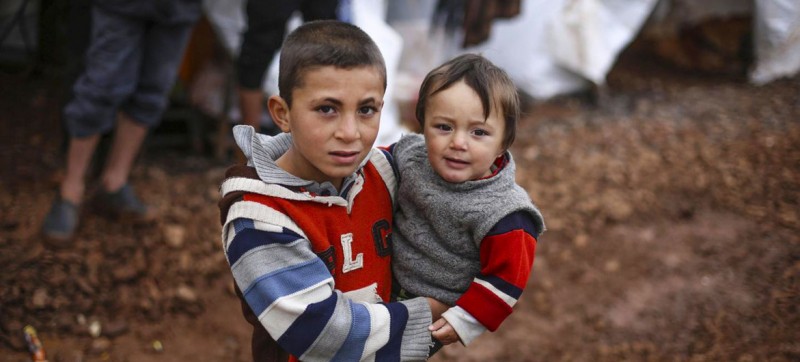Displaced children living in an informal settlement in northwest Syria. Although the outcome of the latest meeting of the Syrian Constitutional Committee was “a disappointment”, members must continue their vital work, the UN Special Envoy for the country said in a briefing to the Security Council on Wednesday. Geir Pedersen reported on the sixth session of the Committee’s so-called “Small Body”, which he convened last week in Geneva.
.@GeirOPedersen It is important that the Constitutional Committee continues its work with urgency & purpose – indeed that it works, as its ToRs say that it should, “expeditiously & continuously to produce results & continued progress”.
— UN Special Envoy for Syria (@UNEnvoySyria) October 27, 2021
The hope was that the 45 men and women – who represent the Syrian government, opposition and civil society – would draft a text that would help support a peaceful future for their country after more than a decade of war.
Working mechanism needed
However, they were unable to move from submitting and discussing initial drafts to developing a productive textual drafting process.
It is important the Committee’s work continues “with urgency and purpose”, said Mr. Pedersen, adding that his engagement will continue.
“We need a common understanding on a working mechanism to help the Constitutional Committee discharge its drafting mandate,” he told ambassadors.
“I remain convinced that progress on the Constitutional Committee could, if done the right way, help to build some trust and confidence. But let me stress that this requires real determination and the political will to try to build some common ground.”
In parallel with the Constitutional Committee meeting, Mr. Pedersen also convened a meeting of the Syrian Women’s Advisory Board (WAB) at a location near Geneva.
Learning from Syrian women
The WAB was established five years ago by the Office of the UN Special Envoy, and it ensures diverse women’s perspectives, as well as gender equality, are reflected throughout the Syrian political process and in peace talks.
Although members come from different backgrounds and affiliations, Mr. Pedersen said their discussions revealed a sense of common purpose and urgency around getting the political process to move.
“They also stressed the need for effective institutional arrangements to guarantee the protection and full participation of women in the future of Syria. And they gave me and my deputy valuable ideas and advice,” he said. “We will continue to consult them closely.”
Syrians still suffering
Even amid diplomatic efforts, Mr. Pedersen underscored the need to never lose sight of the suffering Syrians have endured in the ongoing conflict. More than 12 million remain displaced, whether inside their homeland or as refugees.
Martin Griffiths, the UN humanitarian affairs chief, offered more details about the conditions Syrians are facing. Life remains very difficult, and many are finding things increasingly hard. The violence continues to kill civilians, with attacks and “security incidents” rising this month.
“Daily life in Syria is becoming less and less affordable. Over 90 percent of the population now lives below the poverty line,” said Mr. Griffiths, who is also the UN Emergency Relief Coordinator.
Stepping-up aid delivery
At the same time, Syria is currently experiencing a resurgence of COVID-19, and cases are surging. Meanwhile, vaccination stands at just two per cent of the population.
“And now, exhausted by years of conflict, poverty and the pandemic, Syrians will soon face another bitter winter,” he added. “And as temperatures start to drop, rain, cold and winter conditions will compound hardship for millions of people.”
The UN and its partners continue to do all they can to scale up assistance. Following a cross-line delivery of food aid into Idleb governorate in northwest Syria this August, preparations are underway for a second delivery next month.
Mr. Griffiths said the UN has also developed a plan for a series of regular cross-line operations to deliver “multisectoral assistance” over the next six months, which will complement aid coming across the border from Turkey.




Comments are closed.